What is a hybrid mattress? Your expert guide
For the best balance of comfort and support, try a hybrid mattress − I've outlined all the pros and cons to help you find your mattress match
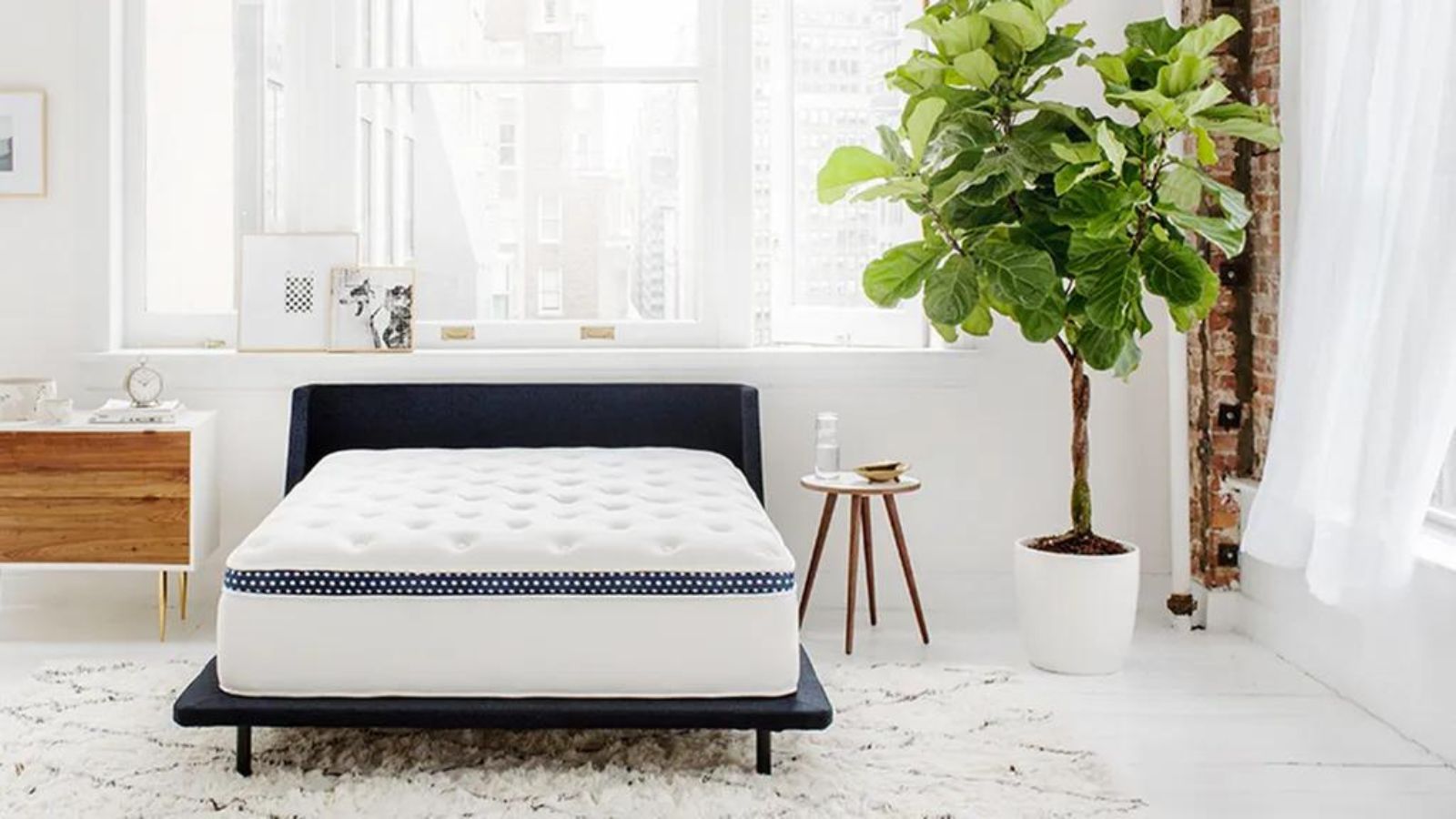

When you buy a hybrid mattress, you get the best of both worlds: all the plush comfort of memory foam, without the sinking feeling or the heat retention, plus the airflow and support of an innerspring, without the risk of a steel coil stabbing you in the side. After years of sleeping on memory foam, I recently made the switch to a hybrid mattress, and I'm loving it.
Out of all the mattress types, a hybrid offers the best balance between comfort and support. I'd recommend a hybrid mattress for just about anyone, whether you sleep hot or cold on your front, back, or side. Of course, even the best hybrid mattress isn't perfect, and most are seriously expensive.
As H&G's resident sleep writer, I lead a team of expert testers in the search to find the world's best mattress. Over the years, we've tested dozens of beds, and some of our favorites are hybrids. This article should tell you everything you need to know about a hybrid mattress, from how it's made to what it costs.
What is a hybrid mattress?
I asked a sleep scientist to help me outline the pros and cons of a hybrid mattress, so that you can make an informed decision. I've also combed through our back catalog of reviews to bring you the best hybrid beds, tried and tested by H&G sleep experts, at the fairest prices you'll find online.
What is a hybrid mattress?
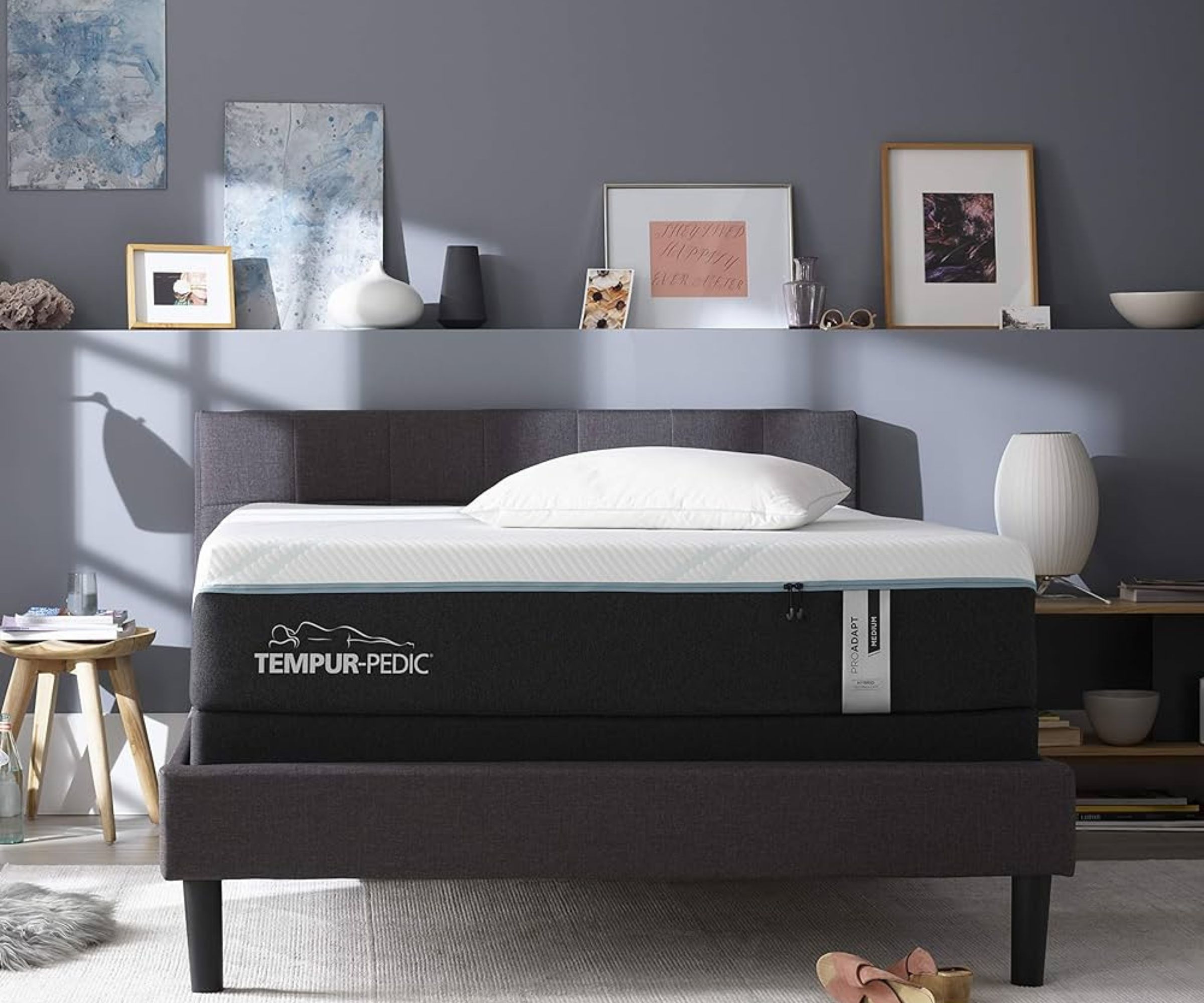
Before we begin, it always helps to define our terms. A hybrid mattress is a multi-layered mattress, comprising spring coils and foam. You might also hear a hybrid referred to as a 'combination mattress', which makes sense: you're combining the best bits of an innerspring mattress and a memory foam model.
Most hybrid mattresses, but not all, are topped with thick layers of memory foam. This molds to the shape of your body and creates that pleasant sinking feeling, while the spring coils work to bear your weight. You can also find hybrid beds that are topped with other materials, from organic latex for eco-friendly pressure relief to organic wool for thermoregulation.
Like all mattress types, hybrid beds come in a range of comfort levels to suit every sort of sleeper. On a scale of Soft to Firm, most hybrid mattresses are sold as Medium or Medium-Firm surfaces: that innerspring core toughens up the soft, supple foam.
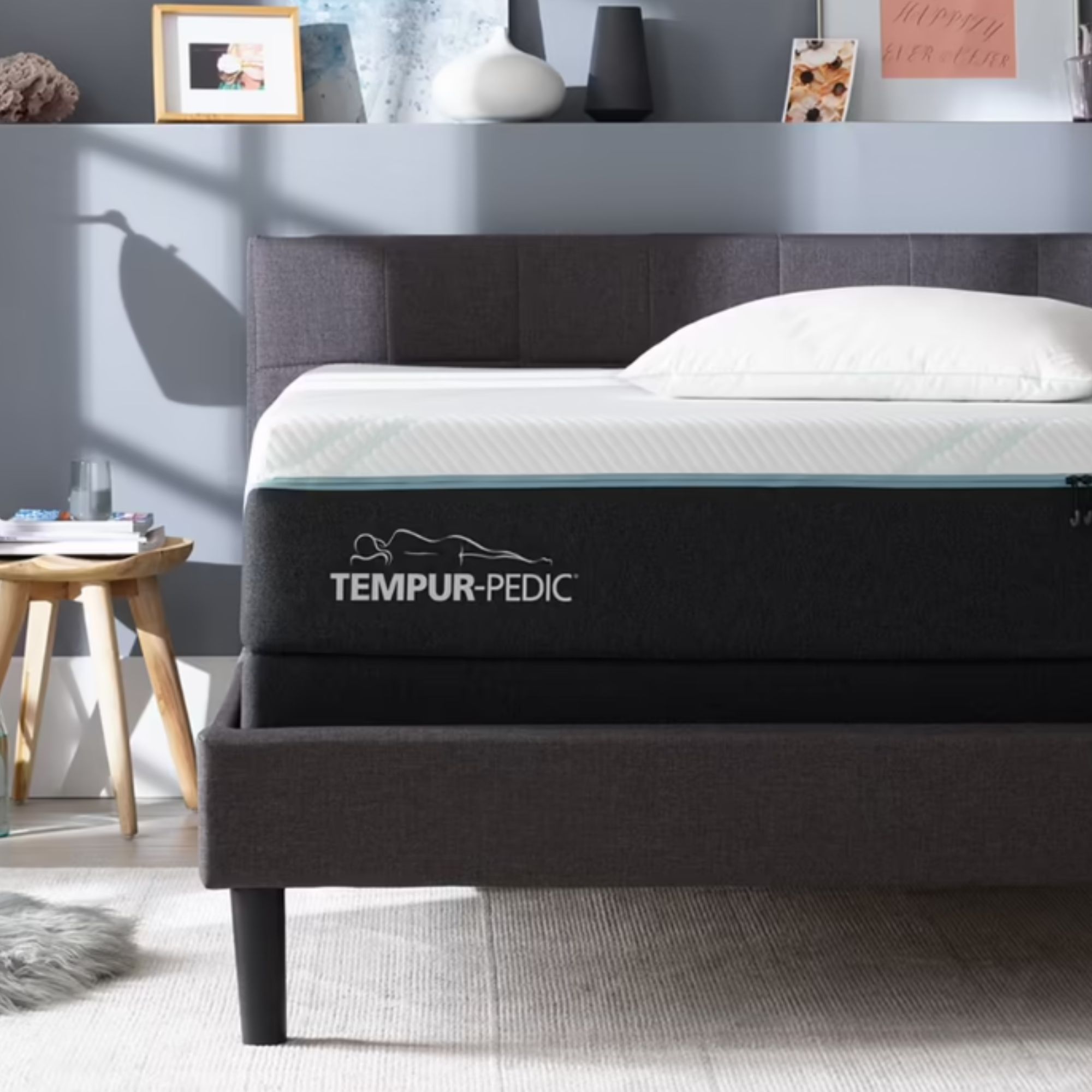
This is the best hybrid bed we've ever tested and a serious contender for the title of 'best mattress'. Like any hybrid mattress, the Tempur-Pedic ProAdapt is lined with hundreds of steel springs. What sets it apart from the crowd is its top layer, made from Tempur-material. Originally designed to absorb the G-force of astronauts in space, Tempur-material offers outstanding motion isolation to counteract the bounce of your average hybrid mattress.
You can find more detail in our Tempur-Pedic ProAdapt Medium Hybrid Mattress review.
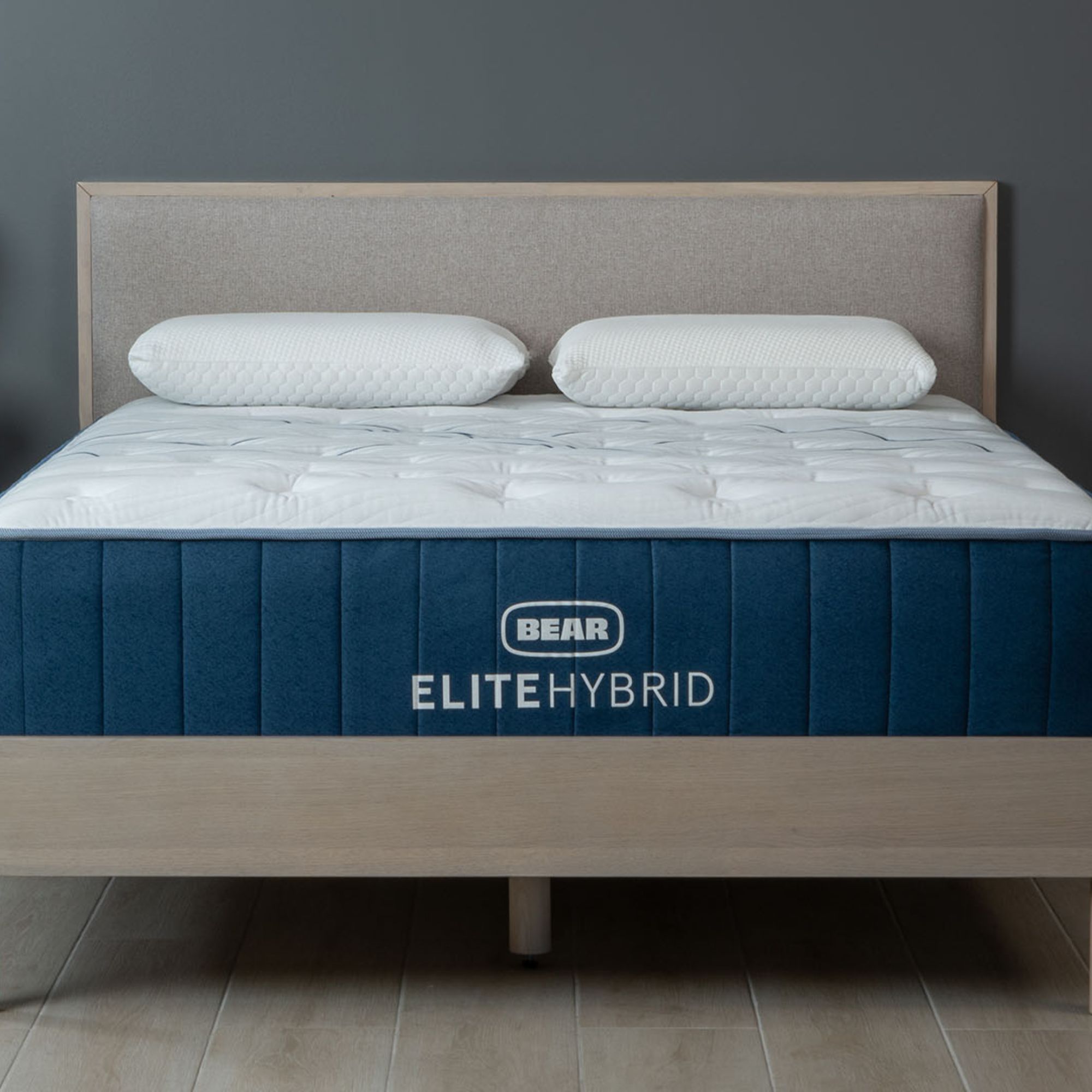
Our expert tester, Alex, just finished her review of the Bear Elite Hybrid Mattress. Spoiler alert: she loved it. As a stomach sleeper, Alex appreciates a firmer surface to keep her neck, shoulders, and spine in line. Her husband is a side sleeper, so he needs a mattress with a little bit of give to protect his pressure points. Both of them slept comfortably on the Bear Elite Hybrid Mattress, even during a heatwave.
You can find more detail in our Bear Elite Hybrid Mattress review.
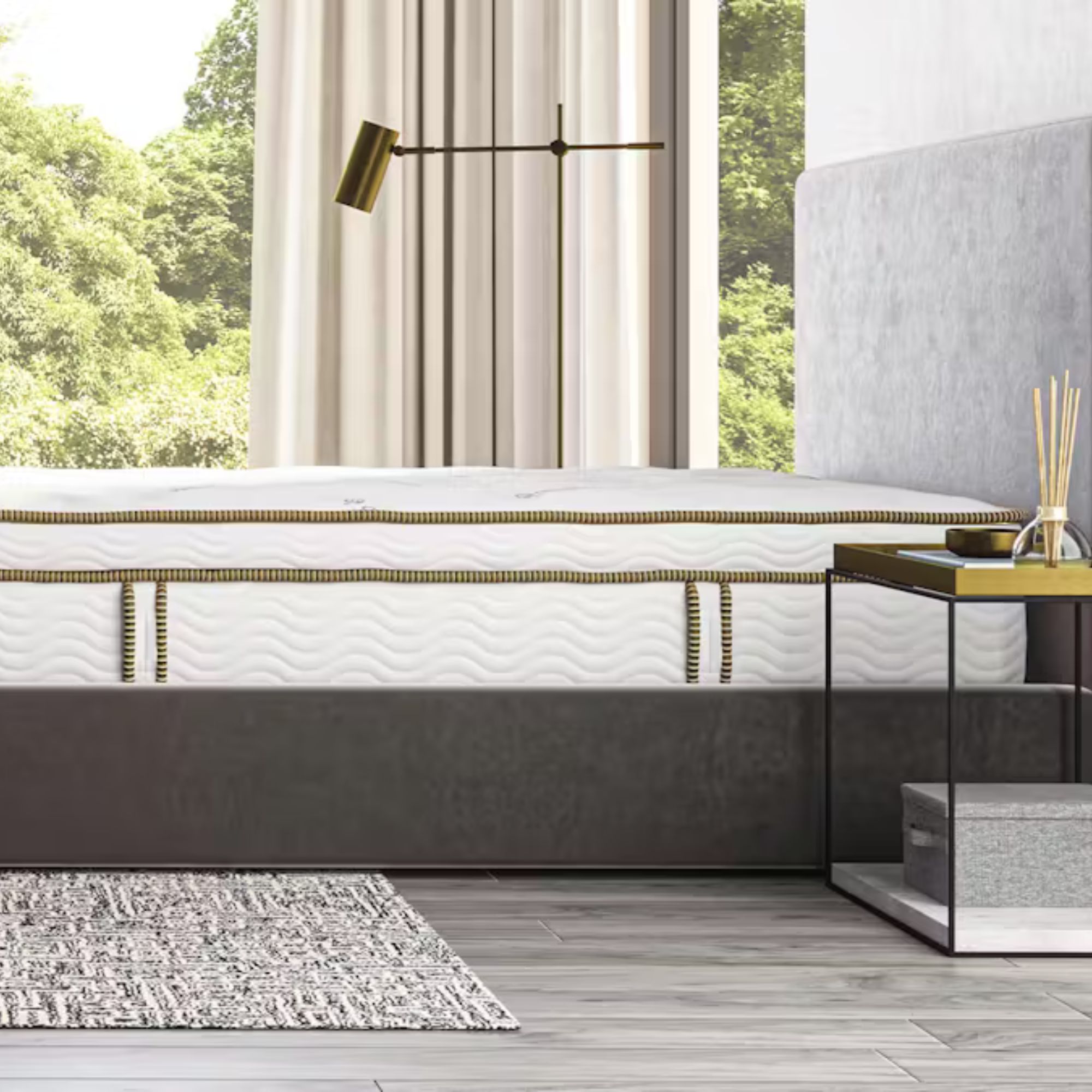
If you like the sound of a hybrid mattress, but you're keen to shop sustainably, then you should consider a latex hybrid bed. Alex tested this one, too, and found that the thick layers of latex really helped to relieve the pressure from her back and ease her aches and pains. The Saatva Latex Hybrid Mattress is a great option for eco-conscious shoppers, hot sleepers, and anyone who suffers from chronic pain. The only downside is that the edge support is a little lacking.
You can find more detail in our Saatva Latex Hybrid Mattress review.
What are the pros of a hybrid mattress?
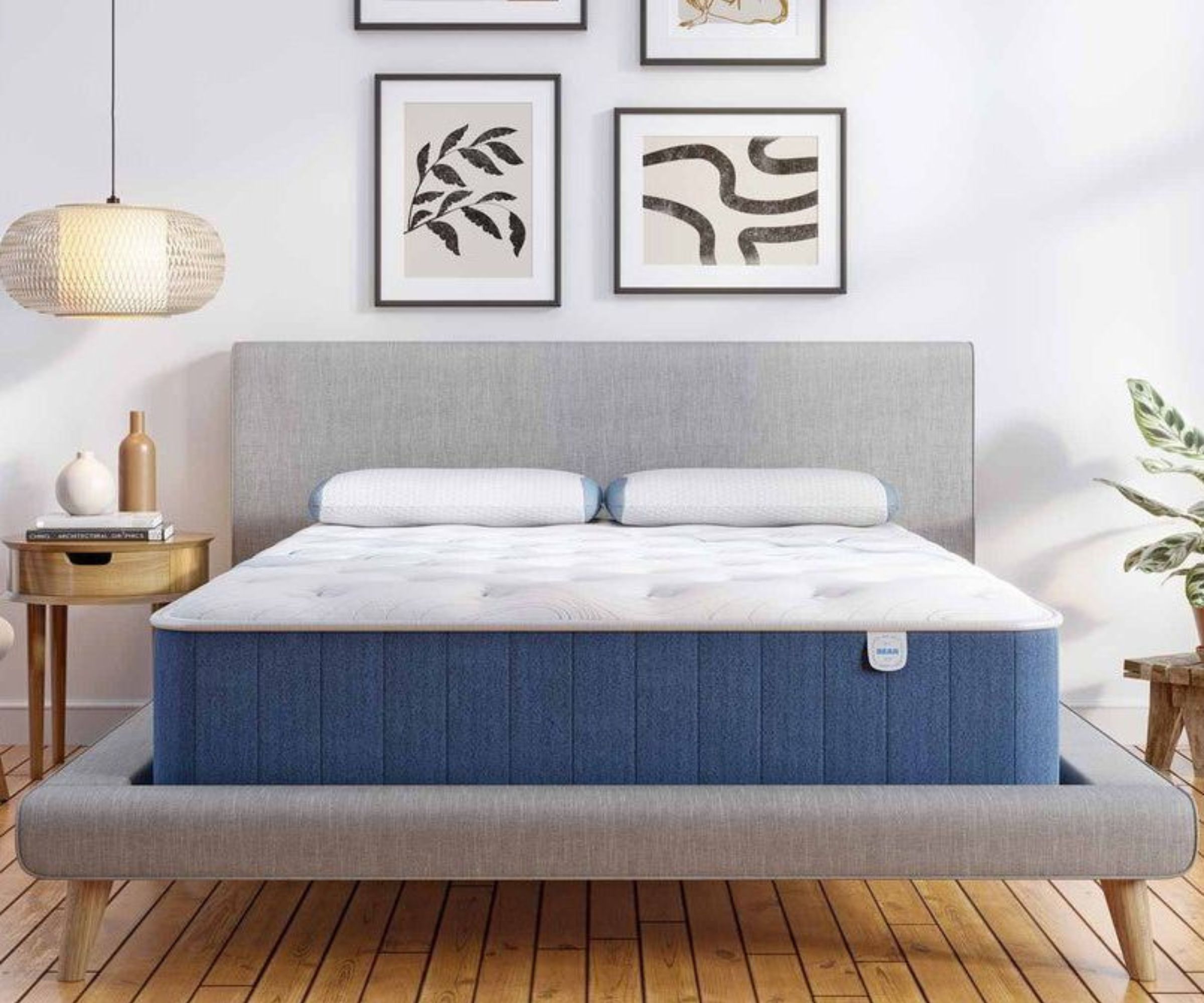
Since they strike such a careful balance between comfort and support, hybrid mattresses are suitable for all sleep positions. The foam on top helps to relieve pressure from your joints, while the springs down below work to bear your weight and stop you from sinking too far into the mattress. That's why hybrid mattresses are so good for back pain: they help to maintain the natural alignment of your spine.
A lot of hybrid mattresses feature rows of reinforced steel coils around the sides of the mattress, which enhances edge support: ideal for stomach sleepers who tend to lie on the side of the bed.
You get a nice level of bounce with a hybrid mattress, which makes it easier to switch positions in the night. According to Theresa Schnorbach, a leading sleep scientist at Emma, 'the thick layer of foam reduces both the noise and the bounce of the springs, helping you to sleep comfortably all night.'
When it comes to hybrid vs memory foam mattresses, hybrids are far more breathable. I put that down to the spring coils, which optimize airflow throughout the mattress as they compress and depress beneath your body weight.
'With more breathability, hybrid mattresses have the added benefit of improving temperature regulation, which can aid better sleep,' says Theresa. I'd recommend a hybrid mattress for hot sleepers and summer nights. If you suffer from night sweats or hot flashes, then I suggest you pair your bed with a set of the best cooling sheets.

Theresa is the Senior Team Lead for Sleep Research at Emma, the bed-in-a-box brand. She is part of the Research and Development team to help Emma make the best possible mattresses. Theresa holds an MSc in Psychology and wrote her first-class thesis on sleep optimisation for emotional wellbeing.
Here at H&G, we assess each mattress against the same criteria: comfort; support; breathability; motion isolation; edge support; and weight bearing capacity. I'd expect a hybrid mattress to score highly in almost every category, except for motion isolation (more on that in a moment).
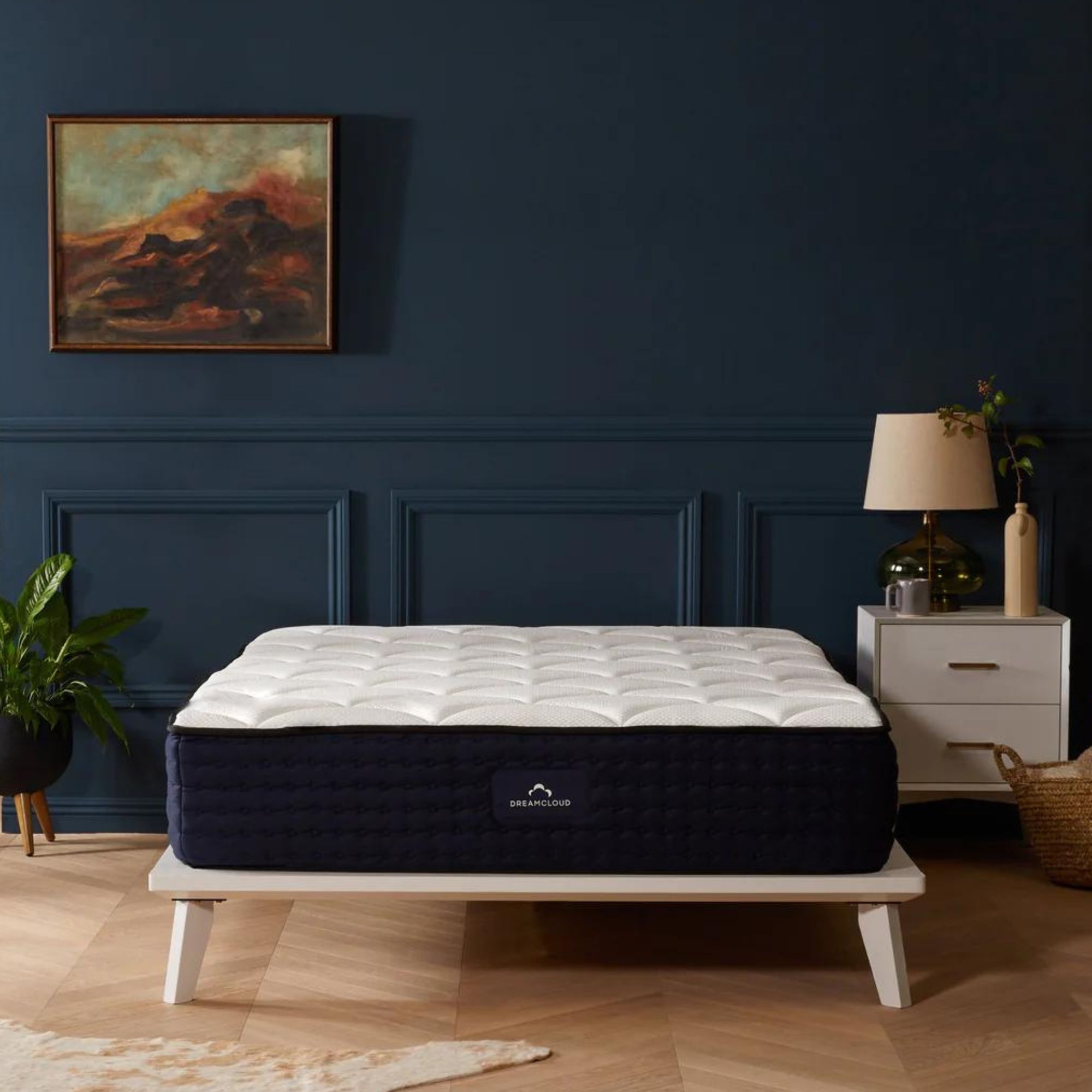
If you're looking to buy a hybrid mattress, but don't have thousands of dollars to spare, I suggest you shop the DreamCloud Luxury Hybrid Mattress. This affordable upgrade is squishy and soft, yet sufficiently supportive to suit all sleepers. The motion isolation is a little lacking, but the edge support is excellent.
You can find more detail in our DreamCloud Luxury Hybrid Mattress review.
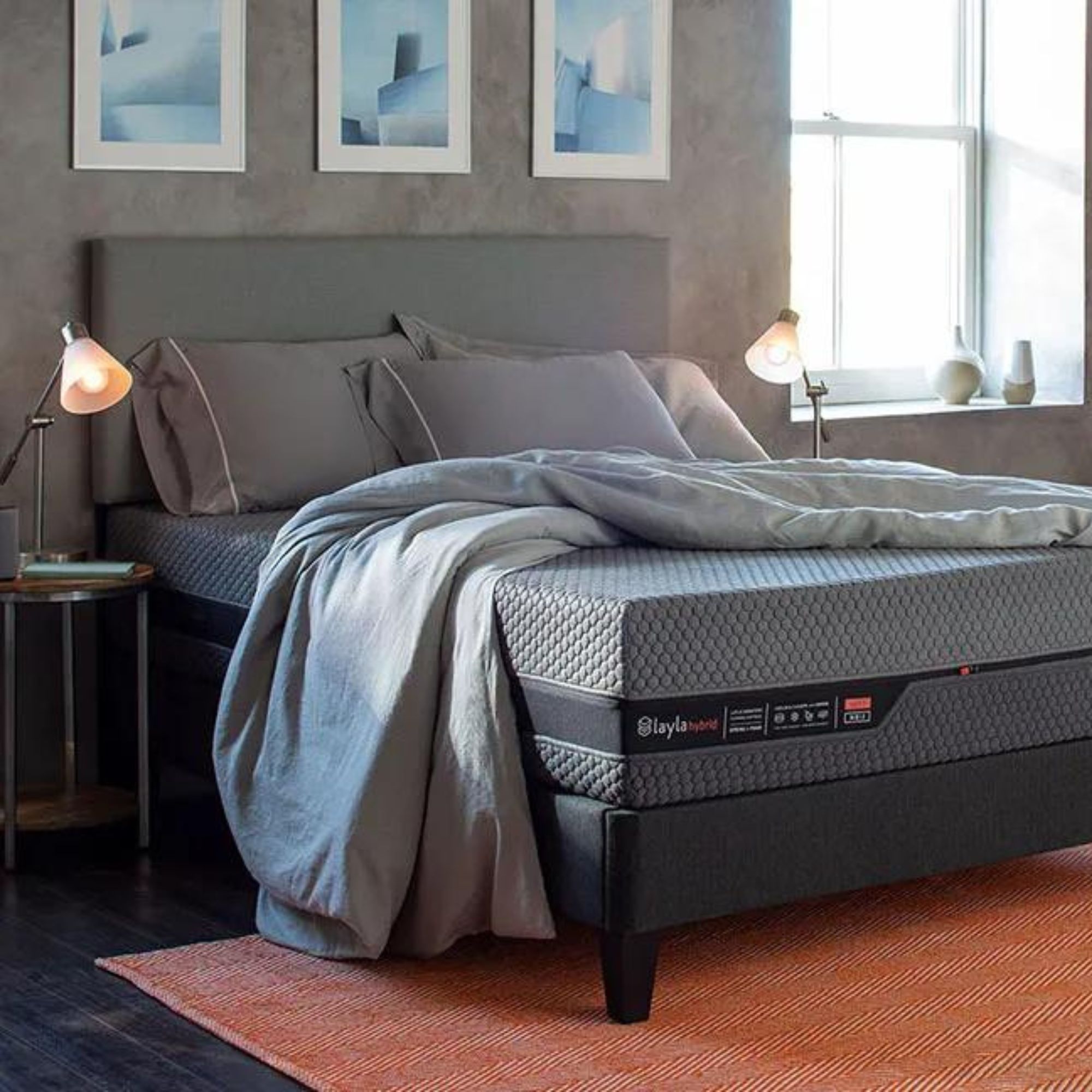
For minimal motion transfer and top-notch thermoregulation, try the Layla Hybrid Mattress. This bed is flippable, with a soft and firm side to suit all sleepers and elongate the life of your mattress. While it's more expensive than the DreamCloud Luxury Hybrid Mattress, it's still fairly affordable for the average American.
You can find more detail in our Layla Hybrid Mattress review.
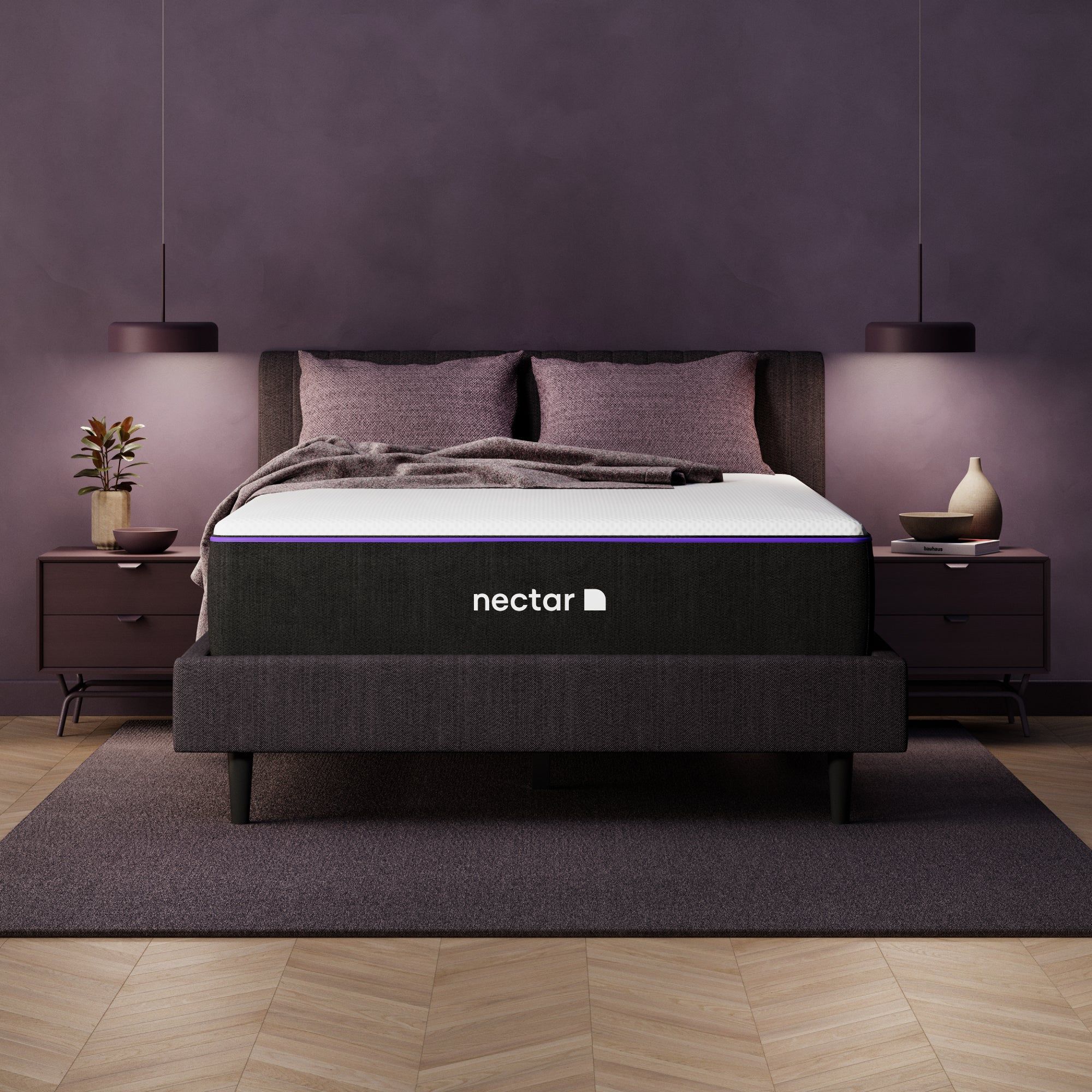
This is the most expensive mattress that Nectar makes. We're talking $1,500 for a Queen, though it's often listed for less. I asked our expert tester, Millie, and she said she'd happily pay $1,500 to get the Nectar Premier Hybrid Mattress at the end of it. Millie suffers from back pain but the plush foam and supportive springs helped to ease her aches.
You can find more detail in our Nectar Premier Hybrid Mattress review.
What are the cons of a hybrid mattress?
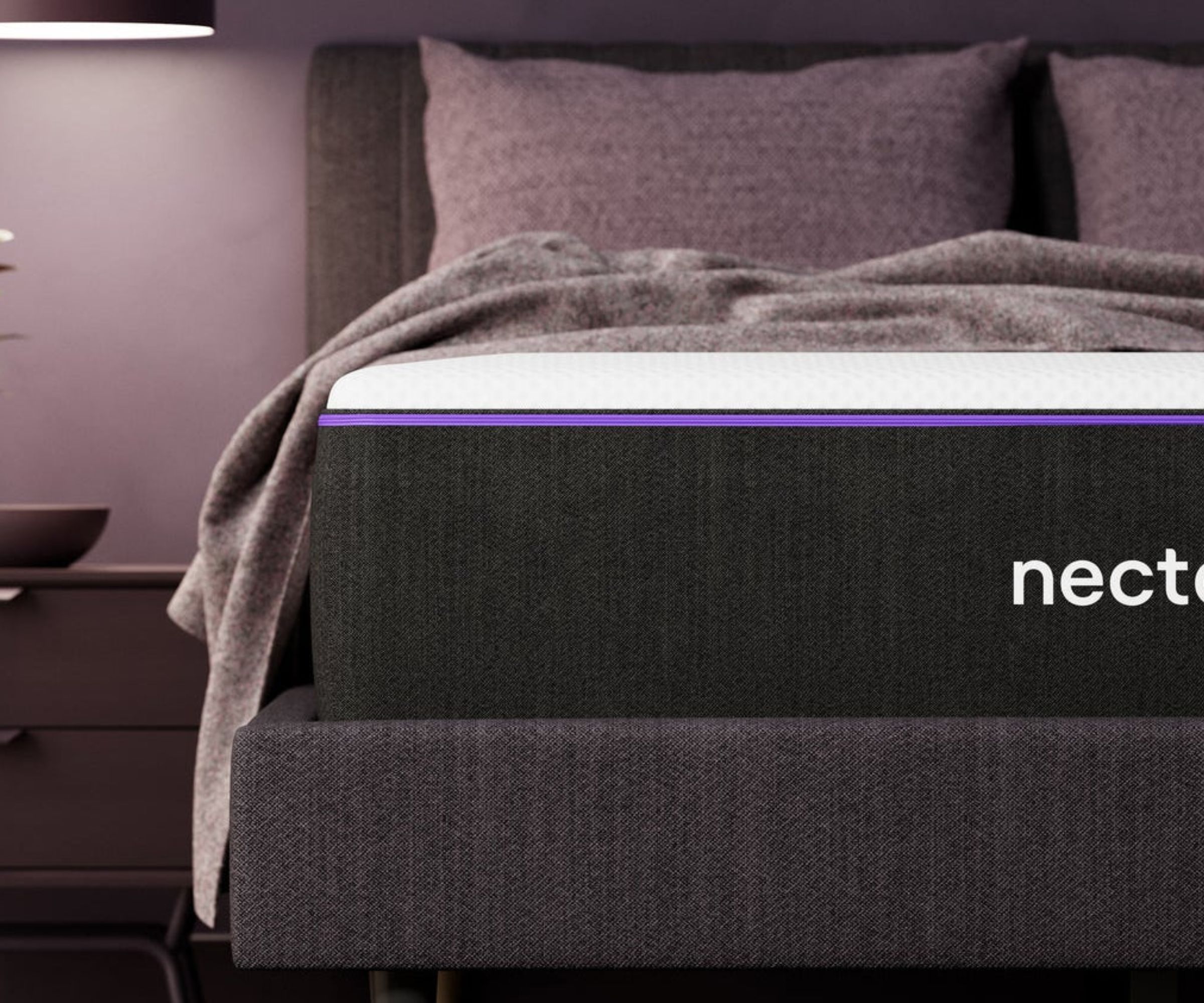
Hybrid beds tend to perform exceptionally well in our mattress tests, only to fall at the final hurdle: motion isolation. All those springs create a bit of bounce, which means motion is easily transferred from one side of the bed to the other. That's bad news for light sleepers, as well as anyone who shares a bed with a pet or partner.
The only workaround is individually pocketed springs. That way, when you apply pressure to a particular spring, it stays there, and doesn't spread to the rest of the coil. When you're shopping for a hybrid mattress, look out for terms like 'pocket-sprung' to stay on the safe side.
Out of all the mattress types, hybrid beds are some of the most expensive, second only to organic latex models. I put that down to the cost of the materials: you're paying for foam, as well as springs. Still, you could save hundreds of dollars on the best hybrid beds when you shop the mattress sales.
The combination of the two materials also tends to make mattresses heavier, so you might struggle to lift, flip, and rotate your mattress. Still, that shouldn't pose an everyday problem, and you could always ask a friend or family member to help you maneuver your mattress.
Final thoughts
You might have made it all the way to the end of this article, only to decide that a hybrid mattress just isn't for you. That's alright – you've still got options. A memory foam mattress might be a better fit for sleepers who like a softer surface, while a latex mattress offers sturdy support from all-natural materials.
Sign up to the Homes & Gardens newsletter
Design expertise in your inbox – from inspiring decorating ideas and beautiful celebrity homes to practical gardening advice and shopping round-ups.

Emilia is our resident sleep writer. She spends her days tracking down the lowest prices on the best mattresses and bedding and spends her nights testing them out from the comfort of her own home. Emilia leads a team of testers across America to find the best mattress for every sleep style, body type, and budget.
Emilia's quest to learn how to sleep better takes her all around the world, from the 3Z mattress factory in Glendale, Arizona to the Hästens headquarters in Köping, Sweden. She's interviewed luxury bedding designers at Shleep and Pure Parima, as well as the Design Manager at IKEA. Before she joined Homes & Gardens, Emilia studied English at the University of Oxford.
-
 Martha Stewart's smart laundry room shelving makes exceptional use of every inch of wall space – it will turn your smallest area into an ultra-functional space
Martha Stewart's smart laundry room shelving makes exceptional use of every inch of wall space – it will turn your smallest area into an ultra-functional space'You can greatly expand the usability of your space by just installing some of these great shelving units': You can follow her technique for under $34
By Megan Slack Published
-
 Sick of white walls? My journey from minimalist to maximalist, one paint stroke at a time
Sick of white walls? My journey from minimalist to maximalist, one paint stroke at a timeWhat do you do if you’re bored with plain walls? If you’re me, you go full muralscape
By Sophia Pouget de St Victor Published